World
Out in the world: LGBTQ news from Europe and Asia
Two teenagers sentenced to life in prison for murdering trans teenager in England

UNITED KINGDOM
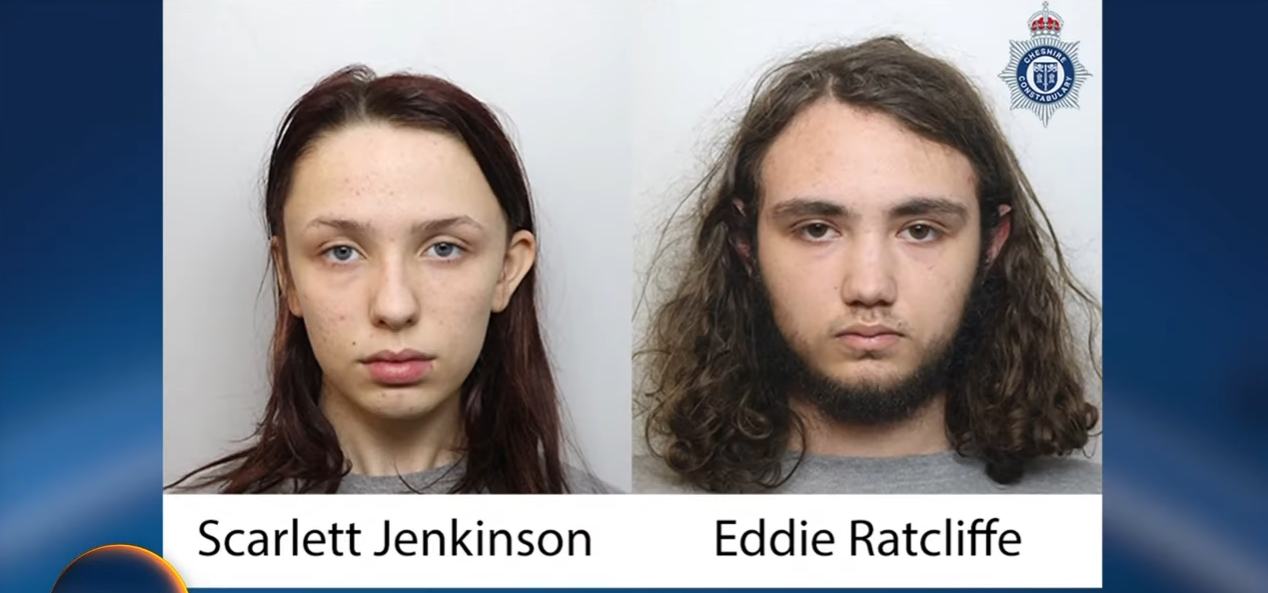
On Friday, the judge presiding over the trial of two teenagers convicted in the brutal stabbing death of transgender teenager Brianna Ghey, a crime that shook northern England, sentenced the pair to life in prison.
Manchester Crown Court Justice Amanda Yip sentenced Scarlett Jenkinson to life in prison with a minimum of 22 years and Eddie Ratcliffe to life with a minimum of 20 years, noting that the pair, both 16, took part in a “brutal, planned murder” that was “sadistic in nature” and motivated by “hostility towards Brianna because of her transgender identity.”
Ghey was a 16-year-old trans girl, TikTok creator and a “beacon of positivity,” according to her friends. She would often film videos set to music while showing off her makeup or walking in a park. It was in one of these parks that her life was taken in February of this year.
In the immediate aftermath of her murder, countless people mourned for her and decried the senseless violence. Her TikToks became makeshift memorials with millions of likes and views.
Many people considered the idea that anti-trans sentiment and rampant transphobia in the U.K. may have played a role in her murder.
PinkNewsUK reported that as he read his victim impact statement at Manchester Crown Court, Brianna’s father, Peter Spooner, described Jenkinson and Ratcliffe as “pure evil.”
“Now my world has been torn apart. Justice may have been done but no amount of time in prison will be enough for these monsters,” he said.
“I cannot call them children because that makes them sound naive or vulnerable, which they are not — they are pure evil. Brianna was the vulnerable one.”
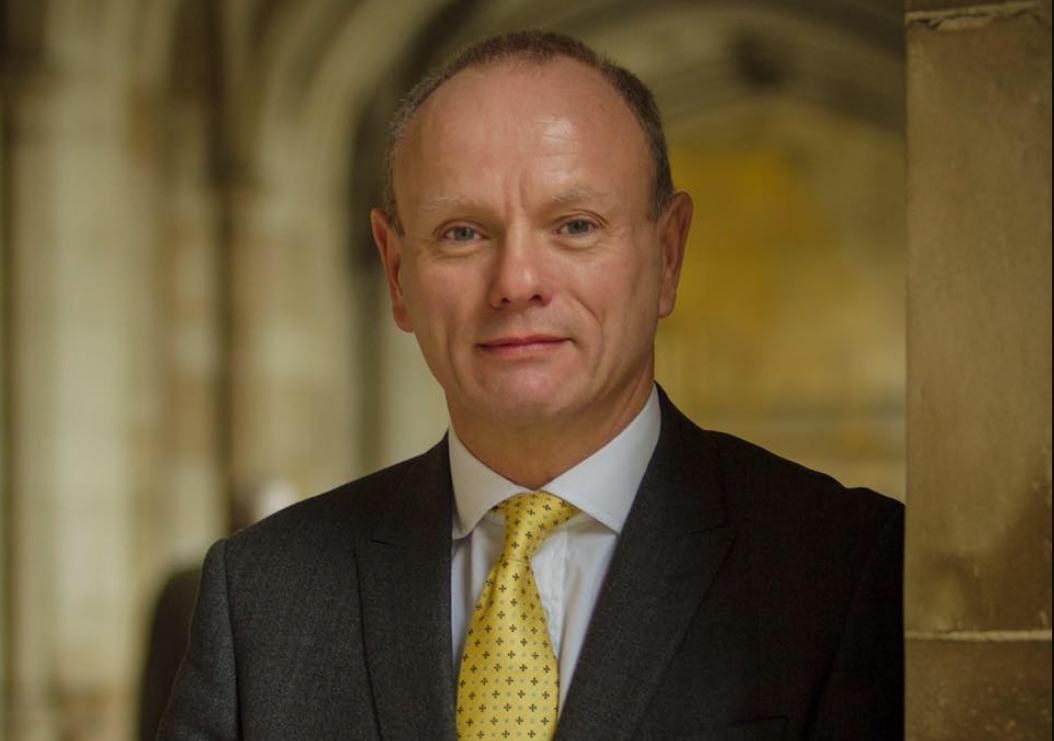
British Conservative Party politician Michael Freer announced he has decided to step down at the next general election after an arson attack on his constituency office and receiving death threats.
PinkNewsUK reported that the 63-year-old Tory, who currently also serves as Parliamentary Under Secretary of State for Courts and Legal Services, has faced a series of death threats and was even targeted by Ali Harbi Ali, the man who murdered Southend West MP David Amess in 2021.
Freer revealed that he and his staff began wearing stab vests at public events after they learned Ali had watched his Finchley office before stabbing Amess at a constituency surgery. An arson attack in December was the “final straw.”
Speaking to Sky News, Freer said: “There comes a point when the threats to your personal safety become too much. I was very lucky that actually on the day [of Ali’s attempted attack] I was due to be in Finchley, I happened to change my plans and came into Whitehall.
Otherwise, who knows whether I would have been attacked or survived an attack. He said he came to Finchley to attack me.”
There have been other threats the MP said including from a group calling themselves Muslims Against Crusades, “about coming to stab me.”
According to PinkNewsUK Freer joins a number of MPs who have said they will not be standing at the next general election, which is expected later this year.
FRANCE
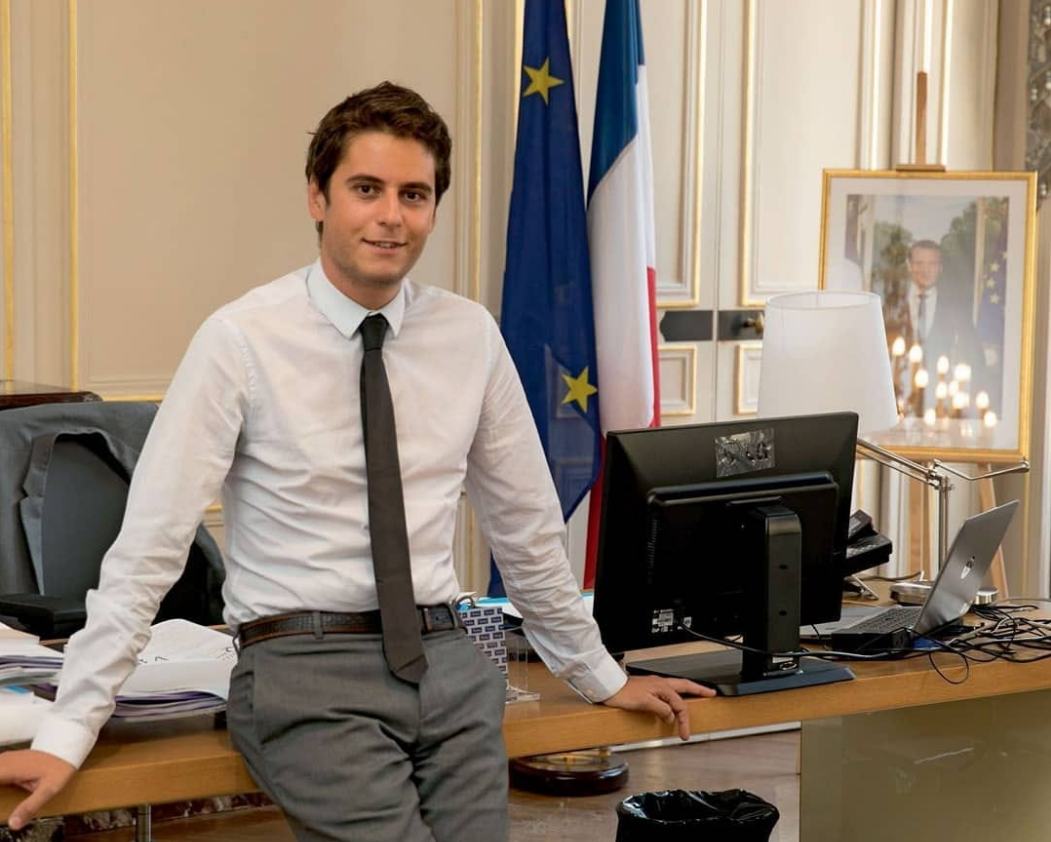
Prime Minister Gabriel Attal in a speech before the National Assembly, the lower house of France’s Parliament, told legislators that “mindsets are evolving” on LGBTQ issues in the country.
In his first keynote address Attal said that France was “tearing itself apart just 10 years ago over same-sex marriage,” he added, whereas “being French in 2024 means … being able to be prime minister and openly gay.” This was “proof our country is moving and mindsets are evolving,” the prime minister noted.
It was the first time the 34-year-old prime minister has referenced his sexual orientation so directly since his installation earlier this month, which was hailed by LGBTQ groups as “a powerful symbol,” Agence France-Presse reported.
But Attal’s sexual orientation has caused barely a ripple in wider French public debate that has more often seen him attacked as a carbon copy of his polarizing boss, French President Emmanuel Macron.
SPAIN
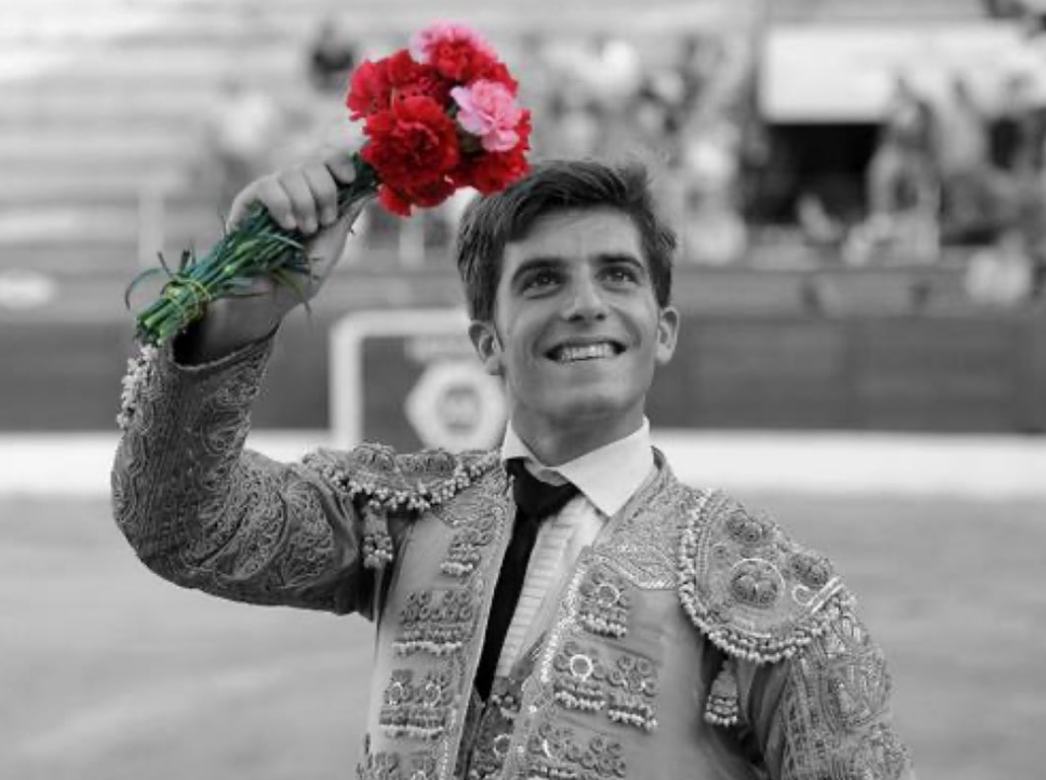
Mario Alcalde made history in the country’s bullfighting sport last month, but not as a matador. The 31-year-old native of Madrid’s Alameda de Osuna neighborhood, where he grew up, revealed in an interview with El Mundo that he identifies as pansexual.
“I’m pansexual. I identify strongly with the LGBTI+ flag. Every person has their taste. I fall in love with the person inside, not their gender,” he said adding, “I follow my own rhythm. My tastes, both political and sexual, are not normal in the bullfighting world.”
Alcalde declined to discuss the politics of being queer further, instead noting his decision to be open about his sexuality and being the first out LGBTQ matador in a sport known for its toxic masculinity occurred after being treated for a dislocated shoulder and broken clavicle after an accident in Madrid’s Las Ventas bullring.
He explained that after a doctor saw he was “wrapped in a rainbow flag dedicated to the Mario Alcalde LGBTQ+ Bullfighting Club” he decided to come out.
Despite confessing that he felt “everyone in the LGBTQ+ community is anti-bullfighting,” the pansexual matador is making it his life’s goal to start a bullfighting club in Madrid’s LGBTQ neighborhood, Chueca.
“Once you confess who you are and the person gets to know you, it’s nice because they begin to see it in a different light,” he said.
“I have to do things so that the community gets involved. They’ll come to watch me fight. At first, they’re very closed minded, there’s too much ignorance and they don’t know what bullfighting is all about.”
He hopes that coming out will not bring negative attention but claims “I don’t care what anyone else thinks.”
In addition to his endeavors in the ring as a matador, he also earns a living as a baggage handler at Adolfo Suárez Madrid–Barajas Airport. “I don’t depend on anyone, that’s why I also work in the airport,” he said.

A painting commissioned by Semana Santa Hermandades, a group of Catholic lay people who organize and perform public religious acts during Seville’s annual Holy Week observances, has drawn severe critique from Spanish conservatives.
The painting, unveiled at the end of January by renowned artist Salustiano García who told the media in attendance at the ceremony that his version of a resurrected Jesus painted against a flat red background was modeled after his son, Horacio.
Spanish social media users derided the work creating memes poking fun at the image or defended the artist, while political conservatives including Pablo Herfelder García-Conde of the ultraconservative Catholic organization Instituto de Política Social labeled the image an “aberration” and a “sexualized and effeminate” Jesus.
Javier Navarro of Spain’s far-right Vox party described the image as a provocation and “homosexual.”
In response to the criticism, the painter told the Spanish newspaper ABC that his portrayal of Jesus was “gentle, elegant and beautiful” and created with “deep respect.”
“To see sexuality in my image of Christ, you must be sick,” he said, insisting there was “nothing” in his painting that “has not already been represented in artworks dating back hundreds of years.”
PORTUGAL
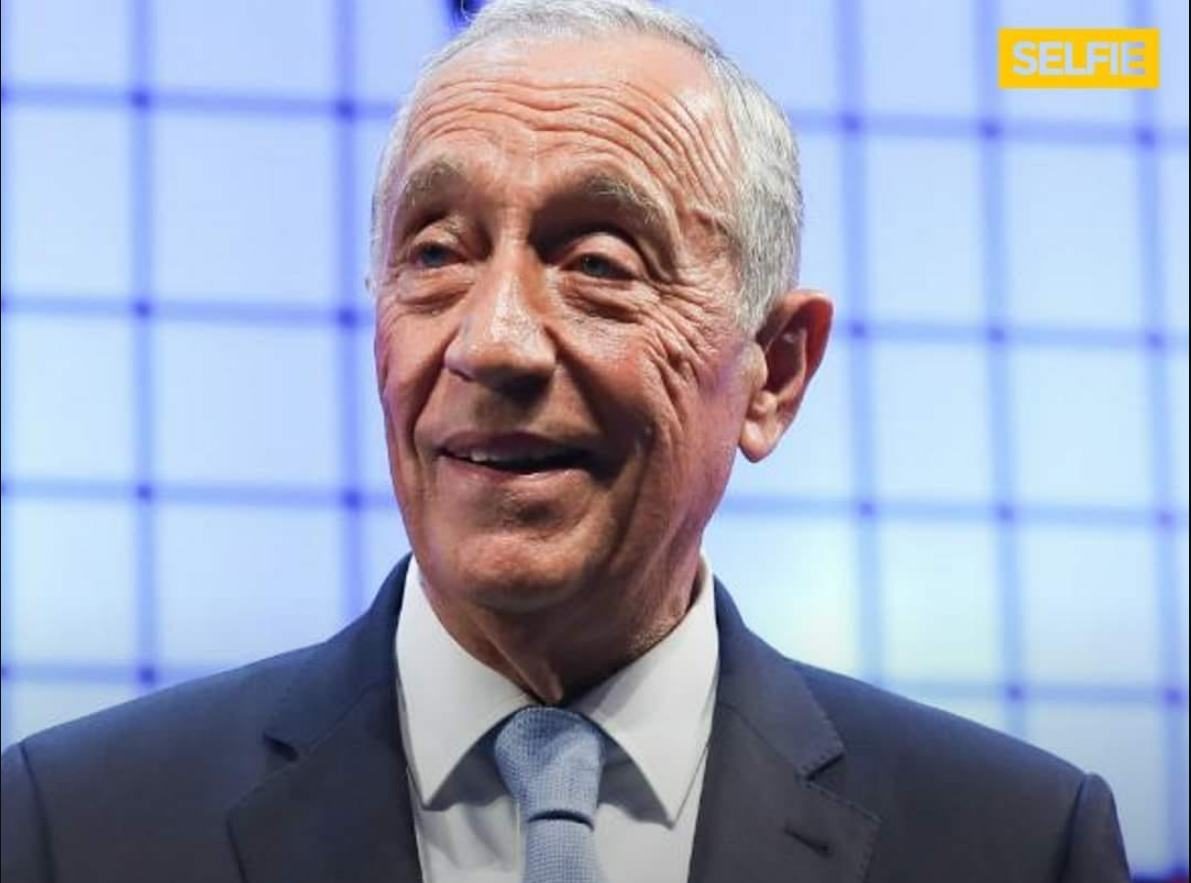
In a statement released on his official website at the end of January, Portuguese President Marcelo Rebelo de Sousa announced that he had vetoed the law that established the measures that schools had to apply to guarantee the right to self-determination of gender identity for students in schools.
De Sousa, a right-leaning conservative, said that he rejected the choice of a neutral name “because it considers that the decree does not guarantee a balance with respect to the essential principle of personal freedom.” He added that law which required schools to adopt to apply the law that establishes gender self-determination “do not sufficiently respect the role of parents, guardians, legal representatives and associations formed by them, nor does it clarify the different situations based on age.
The president returned the law to the Portuguese Parliament to “consider introducing more realism” in an issue in which there is little value in affirming principles that clash, due to their abstract values, with people, families and schools.”
FINLAND
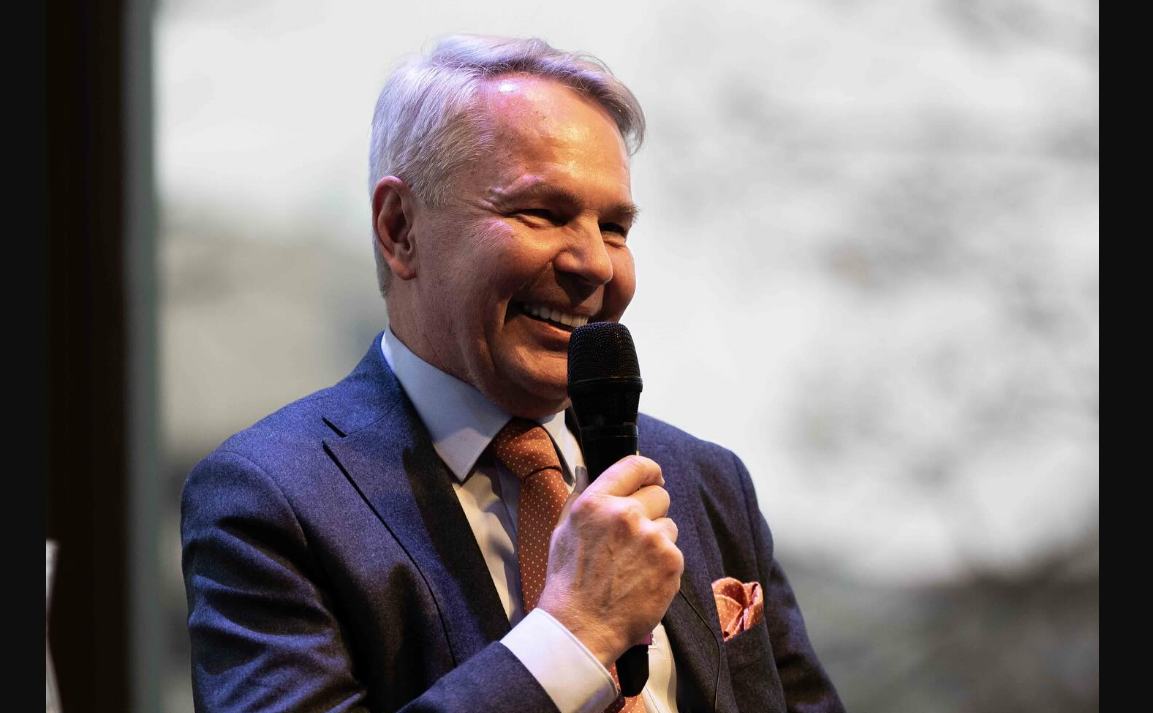
The 65-year-old former Finnish Foreign Minister Pekka Haavisto is now in a tight three-way run off race seeking to become the country’s next president. Haavisto, who is openly gay, has been running as an independent against former Prime Minister Alexander Stubb and Parliamentary Speaker Jussi Halla-aho.
The primary contest, according to Euronews, is between Stubb, who likely gained 27.3 percent of the initial voting and Haavisto at 25.8 percent, in the runoff elections on Feb. 11. Finnish public broadcaster YLE reported Stubb, 55, and Haavisto were the main contenders in the election. About 4.5 million eligible voters picked a successor out of nine candidates to hugely popular President Sauli Niinistö, whose second six-year term expires in March. He wasn’t eligible for re-election. The initial voter turnout was calculated to be 74.9 percent.
The Guardian UK reported that as a part of his campaigning across Finland, Haavisto has previously warned that country must crack down on hate speech against minorities — both as a pressing social issue and a national security issue — he said in other ways he has seen signs of progress during his time on the campaign trail.
“You could see that people could never imagine that gay men could be elected. But this has been changing.”
This is a critical time for the Nordic nation. Finland’s president holds executive power in formulating foreign and security policy. Euronews noted that abandoning decades of military nonalignment in the wake of Russia’s invasion of Ukraine, Finland became NATO’s 31st member in April, much to the annoyance of President Vladimir Putin of Russia, which shares a 832 mile border with the country.
NATO membership, which has made Finland the Western military alliance’s front-line country toward Russia, and the war raging in Ukraine a mere 621 miles away from Finland’s border have boosted the president’s status as a security policy leader.
As foreign minister, Haavisto signed Finland’s historic accession treaty to NATO last year and played a key role in the membership process along with Niinistö and former Prime Minister Sanna Marin.
RUSSIA

The Sormovskiy District Court in Nizhny Novgorod, a city on the Volga River that is 265 miles east of the Russian capital city, sentenced a woman to five days in jail for wearing earrings in the shape of a frog with a rainbow. This was one of the first two convictions since Russia’s draconian anti-LGBTQ ruling by the country’s Supreme Court
Anastasia Yershova was found guilty by a judge of publicly displaying symbols of an “LGBTQ extremist” organization prohibited under a ruling by Russia’s Supreme Court this past November that “the international LGBTQ movement” is “extremist,” and any symbols including Pride flags would be considered illegal. Yershova’s attorney noted to Shkulev Media that the judge didn’t define “symbol” in handing down his sentence.
According to multiple Russian media outlets, the case against Yershova was brought after an unidentified man threatened to turn her and a companion into the police for wearing a Ukrainian flag pin and rainbow earrings in a public cafe. After she refused the man filmed the encounter and then uploaded the video on Russian social media where it went viral.
Russian security police tasked with combating “extremism” arrested Yershova and brought charges. The press office for the Sormovsky District Court confirmed the account in the charging documents and the sentence but refused further comment.
The Krasnooktyabrsky District Court in Volgograd earlier last week found a man identified only as Artyom P. guilty of “exposing the symbols of an extremist organization” after he had shared a photo of the rainbow flag online in a social media post.
The court’s press office said that the man had pleaded guilty and said he had made a “stupid” gesture. The court stated that he was sentenced to pay a fine of 1,000 rubles ($11.04.)
MALAYSIA

Malaysia’s Communications Minister Fahmi Fadzil told reporters during a press conference this past week that a scheduled concert by British singer-songwriter and musician Ed Sheeran would go on as planned at Kuala Lumpur’s Bukit Jalil National Stadium on Feb. 24.
A senior Muslim cleric and leader in the Malay Archipelago had publicly rebuked the government for issuing permits to Sheeran over the latter’s allyship for the LGBTQ community globally.
“As ‘mufti,’ it is my responsibility to urge the Malaysian government, through the relevant ministries (Communication Ministry and Digital Ministry) to revoke the permit for the concert immediately,” the South China Morning Post reported Wan Salim Mohd Noor said to Sinar Harian, a Malay-language daily newspaper.
Salim said Malaysia, as a nation with a predominantly Muslim population, should not allow concerts featuring artists who support “sinful” activities. He also urged all Muslims in the country to boycott the concert.
The minister told reporters the Islamic Development Malaysia Department and the Home Ministry are involved in discussions to grant approvals for concert permits by foreign acts.
“I have spoken about this to the Central Agency for Application for Filming and Performance by Foreign Artists (Puspal) and I take note of the suggestion by the mufti [Noor] on this,” Fadzil said.
“However, Jakim and the Home Ministry are among the 16 agencies involved in the discussions to approve applications for gigs by foreign artists, through the Puspal committee. Therefore, thorough vetting would have been done by all these agencies,” he said at a press conference on Wednesday.
“We take note of the views but we have a process. We will look into the matter if there is a need. At this time, there are no changes in the approval for the concert.”
Additional reporting by PinkNewsUK, Agence France-Presse, El Mundo/The Olive Press, Rádio e Televisão de Portugal, Euronews, The Guardian UK, Fontanka, the BBC and the South China Morning Post.
China
Female writers arrested in Chinese crackdown on gay erotic fiction
Pingping Anan Yongfu arrested last month, detailed ordeal on Weibo

On China’s Weibo, a platform akin to a digital town square, a young woman using the handle Pingping Anan Yongfu laid bare a harrowing ordeal. She was arrested and subjected to a humiliating strip search for publishing gay erotic fiction. Her raw and unsparing account exposed a broader clampdown.
Since February, at least 30 other writers — mostly women in their 20s — have shared similar stories of law enforcement raids, their lives upended for crafting “danmei,” a genre of male-male romance often laced with explicit themes, on Haitang Literature City and other platforms.
”I will never forget it — being escorted to the car in full view,” posted Pingping. “Enduring the humiliation of stripping naked for examination in front of strangers, putting on a vest for photos, sitting in the chair, shaking with fear, my heart pounding.”
A wave of legal limbo engulfs the writers, with many released on bail or awaiting trial, their fates uncertain, according to a BBC. Others remain behind bars, their detention a stark reminder of the crackdown’s reach.
Beyond those arrested, a broader net has been cast: scores of contributors to Haitang Literature City have been hauled in for interrogations, their online words now a potential liability under China’s pornography laws for producing and distributing obscene materials.
China’s pornography laws cast a long shadow over writers, with those profiting from their work facing prison terms exceeding a decade for crafting “explicit descriptions of gay sex or other sexual perversions.” Yet, heterosexual erotica often escapes such scrutiny, slipping through the cracks of enforcement. Nobel Laureate Mo Yan, whose novels brim with graphic sexual scenes, and Jia Pingwa, known for vivid depictions in works like “Abandoned Capital,” and other acclaimed writers continue to publish freely, their books lining shelves without fear of raids. This stark disparity underscores a selective crackdown, where gay erotica bears the brunt of official censure.
Beijing’s unease with the online outcry was palpable, as the trending hashtag #HaitangAuthorsArrested, which amassed more than 30 million views on Weibo, vanished abruptly under censorship’s heavy hand. Posts offering legal advice to the embattled writers were scrubbed, and a detailed report on the crackdown by Caixin, a leading Chinese news outlet, was swiftly taken offline. Writers’ accounts, including some of their pseudonymous handles, have also begun to disappear, erased from the digital landscape as authorities tighten their grip.
As her post ricocheted across China’s digital sphere, Pingping abruptly deleted it, replacing it with a brief message expressing gratitude to supporters while conceding she had broken the law. The admission, tinged with resignation, marked her final act on Weibo before she erased her account entirely, vanishing from the platform amid mounting pressure from authorities.
“Danmei,” a vibrant subgenre of Chinese fiction, centers on romantic and often sexually explicit relationships between men, captivating a largely female readership through its blend of emotional depth, fantasy, and forbidden desire. Rooted in Japanese “yaoi” or “boys’ love,” but distinctly shaped by Chinese cultural sensibilities, it flourishes on Haitang Literature City and JJWXC and other platforms where writers craft sprawling tales of historical, fantastical, or modern love that often laced with themes of power and sacrifice.
Despite its popularity — bolstered by blockbuster adaptations like “The Untamed,” which amassed millions of fans — “danmei” faces intense scrutiny in China, where authorities deem its explicit content “obscene” under vague pornography laws. This tension reflects a broader cultural clash: while “danmei” offers a space for exploring queer identities and challenging traditional gender norms, its underground allure draws both devoted fans and the wary eye of censors seeking to uphold conservative values.
A sweeping crackdown in late 2024 saw Chinese authorities prosecute roughly 50 “danmei” writers, ensnaring them in a legal dragnet under the country’s 2004 obscenity laws. Among them, Yuan Shang Bai Yun Jian, a prominent author who earned 1.85 million yuan ($250,874.58) from her work on Haitang Literature City, was sentenced to nearly five years in prison, her success weaponized as evidence of “obscene materials for profit.”
The harsh penalties, which outstrip those for some violent crimes, sparked outrage online, with netizens decrying the disproportionate punishment for crafting stories that, while explicit, harmed no one.
Chinese media regulator banned ‘danmei’ TV dramas in 2022
Humiliation washed over Pingping as law enforcement stormed into her college classroom, recounted a writer using the Weibo handle “Tianxia Ju Da Bingyuan” or “The World Is a Vast Asylum.” Dragged from her lecture under the stunned gazes of her peers, she endured a public spectacle as officers trailed her to her dormitory, rifling through her belongings in a search for evidence of her “danmei” stories, leaving her exposed and her privacy shattered.
“Danmei” novels, centered on male-male romance have spurred numerous Chinese television dramas, but state censorship has sharply reduced their output. A 2021 Sixth Tone report identified more than 60 “danmei”-based dramas in development or slated for release, involving actors who include Chen Feiyu and Fan Chengcheng. Many of them, however, were halted following the 2022 National Radio and Television Administration ban on such adaptations.
MyDramaList records 16 aired series, including “The Untamed” (2019) and “Word of Honor” (2021), each with 30–50 actors, totaling approximately 480–800 performers. Lead actors, including Xiao Zhan and Wang Yibo, earned $1–3 million per series, per The China Project, while others made $50,000–$100,000, though precise figures remain limited due to private contracts. The 2021 “Internet Clean-up Campaign” and continued restrictions have significantly curbed new “danmei” adaptations.
United Nations
UN Human Rights Council extends LGBTQ rights expert’s mandate
29 countries voted for resolution

The U.N. Human Rights Council on Monday extended the mandate of the United Nations’ independent LGBTQ rights expert for another three years.
The resolution passed with 29 countries (Albania, Belgium, Bolivia, Brazil, Bulgaria, Chile, Colombia, Costa Rica, Cuba, Cyprus, the Czech Republic, the Dominican Republic, France, Georgia, Germany, Iceland, Japan, Kenya, the Marshall Islands, Mexico, the Netherlands, North Macedonia, South Korea, Romania, South Africa, Spain, Switzerland, Thailand, and Vietnam) voting for it and 15 countries (Algeria, Bangladesh, Burundi, China, Cote d’Ivoire, Democratic Republic of Congo, Ethiopia, Gambia, Indonesia, Kuwait, Malawi, Maldives, Morocco, Qatar, and Sudan) voted against it.
Benin, Ghana, and Kyrgyzstan abstained.
The U.S. in February withdrew from the Human Rights Council. The Trump-Pence administration in 2018 pulled the U.S. from it. The U.S. in 2021 regained a seat on the Human Rights Council.
Graeme Reid has been the UN’s independent LGBTQ rights expert since 2023. The South African activist, among other things, previously ran Human Rights Watch’s LGBT Rights Program.

South Africa National Assembly Speaker Thoko Didiza on June 17 swore in lesbian feminist Palomino Jama as a new MP.
Jama joins other LGBTQ legislators — including Public Works and Infrastructure Minister Dean Macpherson; Forestry, Fisheries and the Environment Minister Dion George; and Deputy Women, Youth, and Persons with Disabilities Minister, Steve Letsike.
Jama said she will work hard and excel as MP.
“What a great moment to be alive. Thank you youth of 1976, thank you Simon Nkoli, Phumi Mthetwa, Paddy Nhlaphos, Vanessa Ludwig, and others for what you did for the LGBTI people in the 80s and 90s. Lastly, for the fierce fist of the Jamas to always hit where it matters for the people of this country,” said Letsike.
Embrace Diversity Movement, a local LGBTQ organization, said Jama’s inauguration came at an appropriate time, during Pride month.
“Her swearing-in took place during a month of profound significance in June, which marks both international Pride Month and Youth Month in South Africa,” said the group. “Palomino is a seasoned queer activist and dedicated community builder with a distinguished record of leadership and service.”
“The EDM proudly supports Palomino in her deployment to parliament, her presence meaningfully advances youth and queer representation in public office,” added the Embrace Diversity Movement. “We are confident that she will serve the people of South Africa with integrity, courage, and distinction.”
South Africa is the only African country that constitutionally upholds LGBTQ rights. There are, however, still myriad challenges the LGBTQ community faces on a daily basis that range from physical attacks to online abuse.
Letsike in May faced a barrage of online attacks after she released a scathing statement against popular podcaster Macgyver “MacG” Mukwevho, who during a podcast episode in April insinuated that the reason behind popular socialite Minnie Dlamini’s “unsuccessful” relationships were probably due to the bad odor from her genitals.
Letsike, who viewed MacG’s comments as offensive, called for the podcaster to be summoned before parliament’s Portfolio Committee on Women, Youth, and Persons with Disabilities and criticized the local television station that aired the podcast.
X users and other social media subscribers bombarded Letsike with anti-lesbian comments. She, however, was unphased.
Letsike continues to face anti-lesbian comments, even though MacG apologized and the television station on which his podcast had aired cancelled its contract with him.
-

 U.S. Supreme Court5 days ago
U.S. Supreme Court5 days agoSupreme Court to consider bans on trans athletes in school sports
-

 Out & About5 days ago
Out & About5 days agoCelebrate the Fourth of July the gay way!
-

 Virginia5 days ago
Virginia5 days agoVa. court allows conversion therapy despite law banning it
-

 Opinions5 days ago
Opinions5 days agoCommunity comes together to repair WorldPride history exhibition










